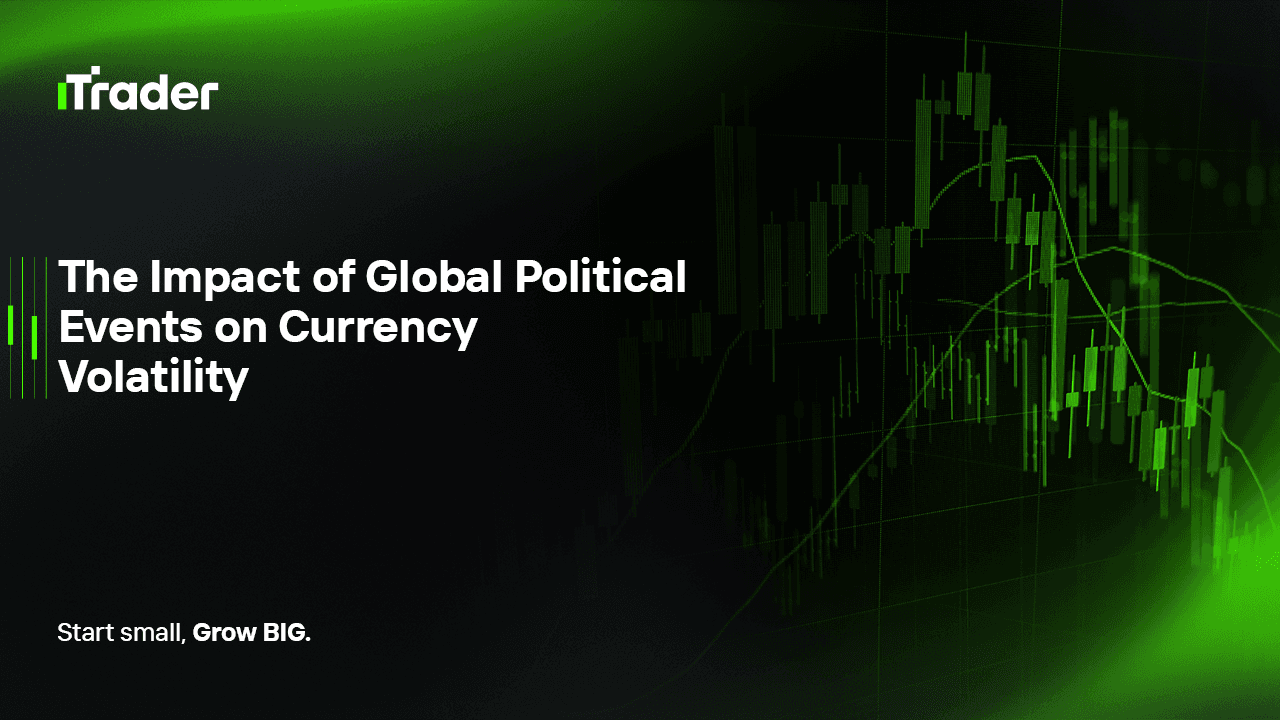2025-07-04
success depends not only on technical setups and statistical edges but also on navigating the unpredictable terrain of global political events. Geopolitical turmoil, policy changes, and election cycles often catalyze sharp movements in currency pairs, shifting sentiment faster than any economic report can. While volatility creates opportunity, it also amplifies risk — making it imperative for proprietary traders to understand and prepare for the political forces that drive the markets.

This blog explores how political events shape currency volatility and how forex prop traders can strategically position themselves before, during, and after such events.
AI Summary:
How do global political events influence forex markets? Political instability, elections, wars, sanctions, and policy shifts significantly affect currency volatility. Prop traders must learn to anticipate and hedge against these events using scenario analysis, volatility-based sizing, and adaptive risk management to stay ahead in dynamic markets.
Unlike equities or commodities, currencies are relative instruments — they reflect the comparative strength of two economies. When politics threatens the perceived stability or growth of one country, its currency reacts immediately.
Key mechanisms include:
Sudden shifts in power or uncertain outcomes (e.g., contested elections) cause dramatic repricing of risk. Market participants re-evaluate fiscal and monetary policy projections based on new leadership.
Armed conflict, especially involving major economies or key commodity-producing regions, drives risk-off flows and commodity currency weakness.
When nations impose sanctions or cut diplomatic ties, financial systems are disrupted. FX markets quickly respond to anticipated economic fallout.
Unexpected referendums (like Brexit) or sweeping policy proposals (currency pegs, capital controls) create large gaps and erratic movements.
The reaction is rarely linear — often it unfolds in phases:
Prop traders thrive on movement. Events like political surprises can provide strong directional moves or mean-reversion setups if reactions are overblown.
Unexpected gaps and slippage become more common. Strategies dependent on tight spreads, like scalping, may become unviable during these periods.
Some pairs may become untradable during crisis moments, with brokers widening spreads or suspending execution.
Avoid static lot sizes. Use ATR or implied volatility-adjusted risk models to scale down during uncertainty or widen stops.
Create event trees outlining possible outcomes and their probable market reactions. Pre-event straddles (long vol positions) may benefit from surprise outcomes.
Understand correlations — during crisis, USD, JPY, and CHF often strengthen. Commodity-linked currencies (AUD, NZD, CAD) may suffer.
Don't chase gaps or enter without volatility-adjusted risk. Let price action confirm sentiment shifts before committing.
In 2018, political tensions between the U.S. and Turkey — compounded by domestic economic mismanagement — triggered a dramatic collapse of the Turkish lira (TRY).
Lesson: Political risk is real and can become terminal without disciplined sizing and risk caps.
Forex prop traders should integrate the following tools into their playbook:
Not all political events impact the market equally. For effective trade management, prop traders should classify political risks into three levels:
Tier 1 includes scheduled events like elections or central bank speeches. These are known in advance, allowing traders to plan scenarios, adjust size, or trade volatility breakouts.
Tier 2 covers unexpected geopolitical shocks — such as wars or terrorist attacks — that cause sudden volatility spikes. In such cases, reducing exposure and waiting for stabilization is key.
Tier 3 involves long-term structural shifts like sanctions or coups. These require reassessing correlations and macro trends, as they can reshape currency behavior over months or years.
This tiered approach helps traders respond with strategy, not emotion — turning uncertainty into opportunity while protecting capital.
For prop traders, ignoring political risk is a recipe for exposure. But harnessing it — with discipline, strategic foresight, and adaptability — can offer rare windows of asymmetric opportunity. The key lies not in predicting the political event itself, but in anticipating market behavior in response to it. By doing so, traders not only protect capital but also capitalize on volatility that others fear.
In forex, politics is not just background noise — it is a primary driver of price.
© 2025 iTrader Global Limited|会社登録番号:15962
iTrader Global Limitedは、コモロ連合のアンジュアン自治島ムツァムドゥのHamchakoに所在し、コモロ証券委員会によって認可・規制を受けています。ライセンス番号は L15962/ITGL です。
iTrader Global Limitedは「iTrader」の商号で運営しており、外国為替取引業務を行う許可を受けています。会社のロゴ、商標、ウェブサイトはすべて iTrader Global Limited の専有財産です。
iTrader Global Limitedの他の子会社には、iTrader Global Pty Ltd(オーストラリア会社登録番号(ACN):686 857 198)が含まれます。 この会社は、Opheleo Holdings Pty Ltd(オーストラリア金融サービスライセンス(AFSL)番号:000224485)の認可を受けた代表者(AFS代表番号:001315037)です。登録住所は Level 1, 256 Rundle St, Adelaide, SA 5000 です。
免責事項: この法人は、本ウェブサイト上で取引される金融商品の発行者ではなく、それらに対して責任を負いません。
リスク警告: 差金決済取引(CFD)は、レバレッジにより資本の急速な損失リスクが高く、すべての利用者に適しているとは限りません。
ファンド、CFD、その他の高レバレッジ商品を取引するには、専門的な知識が必要です。
調査によると、84.01%のレバレッジ取引者が損失を被っています。取引を開始する前に、リスクを十分に理解し、資金を失う可能性があることを認識してください。
iTraderは、レバレッジ取引によるリスク、損失、またはその他の損害について、個人または法人に対して一切の責任を負わないことを明言します。
利用制限: iTraderは、法律、規制、または政策によりこのような活動が禁止されている国の居住者を対象として、本ウェブサイトやサービスを提供していません。